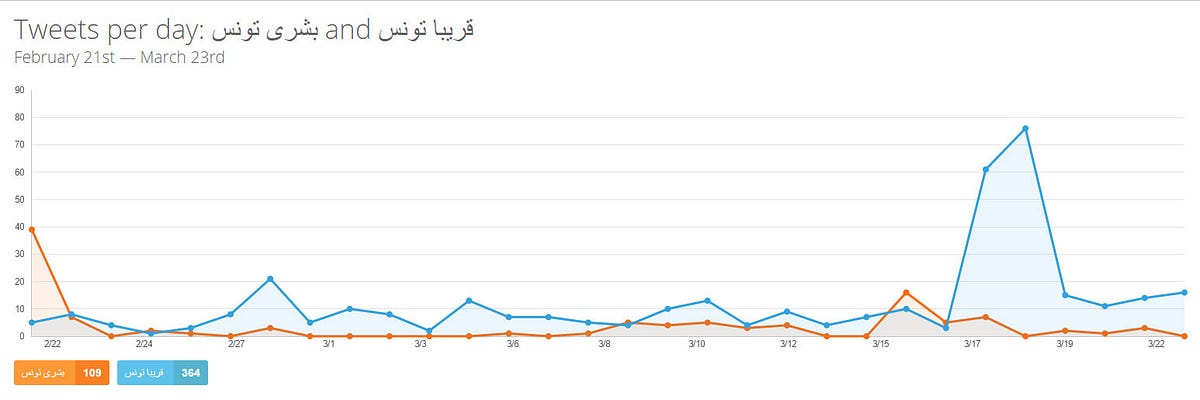Wassim Zoghlami at Medium: “…Data mining is the process of posing queries and extracting useful patterns or trends often previously unknown from large amounts of data using various techniques such as those from pattern recognition and machine learning. Latelely there has been a big interest on leveraging the use of data mining for counter-terrorism applications
Using the data on more than 50.000+ ISIS connected twitter accounts , I was able to establish an understanding of some factors determined how often ISIS attacks occur , what different types of terror strikes are used in which geopolitical situations, and many other criteria through graphs about the frequency of hashtags usages and the frequency of a particular group of the words used in the tweets.
A simple data mining project of some of the repetitive hashtags and sequences of words used typically by ISIS militants in their tweets yielded surprising results. The results show a rise of some keywords on the tweets that started from Marsh 15, three days before Bardo museum attacks.

Some of the common frequent keywords and hashtags that had a unusual peak since marsh 15 , three days before the attack :
#طواغيت تونس : Tyrants of Tunisia = a reference to the military
بشرى تونس : Good news for Tunisia.
قريبا تونس : Soon in Tunisia.
#إفريقية_للإعلام : The head of social media of Afriqiyah
#غزوة_تونس : The foray of Tunis…
Big Data and Data Mining should be used for national security intelligence
The Tunisian national security has to leverage big data to predict such attacks and to achieve objectives as the volume of digital data. Some of the challenges facing the Data mining techniques are that to carry out effective data mining and extract useful information for counterterrorism and national security, we need to gather all kinds of information about individuals. However, this information could be a threat to the individuals’ privacy and civil liberties…(More)”
